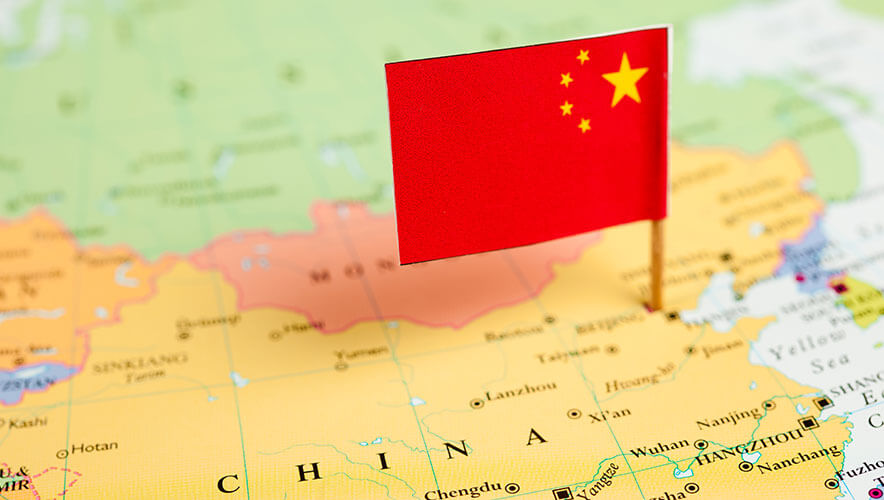News on China Highlights Its Extensive Role in Political and Commercial Affairs
China is the world’s second-largest economy behind the United States, about the size of the next five largest economies combined. It is second in population, having recently been surpassed by India, and has roughly the same number of people as the next six most populous countries combined. For good measure, we’ll throw in that China is also roughly the same size geographically as the United States, coming in behind Russia and Canada, so China also boasts a bountiful supply of diverse natural resources.
Needless to say, China has an outsized role in geopolitical affairs, and a scan of the news on any given day reinforces this notion. This is a roundup of several of those news stories, showing the reach and role China is playing in world stability (or instability), commerce, and political influence.
South China Sea Tension
Over the weekend, Chinese coast guard ships surrounded and blasted a Philippine military vessel with water cannons. Philippine Chief of Staff of the Armed Forces General Romeo Brawner, Jr., was onboard the vessel, which had resupplied a dilapidated Philippine naval vessel named the Sierra Madre, broken down on an outpost known as the Second Thomas Shoal. The Sierra Madre, no longer seaworthy, was run aground on the shoal, and the Philippine Navy continues to keep troops on the ship to assert its sovereignty of the area, which is disputed by China.
The Washington Post reported that this is just one of several examples tensions between China and the Philippines which have been escalating throughout the year. The United States and the Philippines have a mutual defense treaty.
China and Vietnam
China and Vietnam also have territorial disputes in the South China Sea, however, Chinese President Xi Jinping and Vietnamese leader Nguyen Phu Trong held talks, announcing earlier today a mutual support for an initiative to build “a shared future community for human kind.” The countries signed 37 cooperation agreements, ranging from rail transportation between the countries to digital ties between the countries to agreements designed to reduce tensions in the South China Sea between the two countries.
The meeting between the two leaders comes several months after U.S. President Joe Biden visited Vietnam. China is promoting Xi’s visit as a display that it has greater sway in the region than the United States. However, the BBC reported that Vietnamese society remains deeply suspicious of China.
China’s Econo-Diplomatic Efforts
“China’s Growing Influence in…” headlines, where you can insert various geographic regions, like Latin America, the Middle East, and Africa, continued throughout 2023, a show of China using its status as the second-largest economy in the world to achieve its global goals.
A report in Forbes, however, said the influence may have reached its limits. First, it argued that China achieved the influence it needed to initiate diplomatic relations between Saudi Arabia and Iran because it was not an enemy to either nation and purchased oil from both. As China has shifted and purchased oil from Russia, it’s influence in the Middle East has waned.
Second, China’s Belt and Road Initiative, which loaned money to countries—primarily developing countries, but also including others such as Italy and Portugal—for infrastructure projects. The initiative has frayed when projects in many countries failed to produce an economic benefit large enough to enable the repayment of loans. Italy pulled out last week, and Forbes reports the lack of repayment has created a strain on China’s economy.
In other news, New Zealand reaffirmed its commitment to shared intelligence with Australia, the United Kingdom, the United States, and Canada, a response to what New Zealand sees as increased aggression to assert dominance in the South Pacific.
Chinese-linked Cyber Attacks Hit U.S. Infrastructure
A report in The Washington Post cited U.S. and corporate security officials as sources for a story on hackers linked to the Chinese military who have penetrated U.S. infrastructure companies, including power and water utilities.
“None of the intrusions affected industrial control systems that operate pumps, pistons, or any critical function, or caused a disruption,” the Post reported. “But [U.S. officials] said the attention to Hawaii, which is home to the Pacific Fleet, and to at least one port as well as logistics centers suggests the Chinese military wants the ability to complicate U.S. efforts to ship troops and equipment to the region if a conflict breaks out over Taiwan.”
The report is an update of continuing cyber activity from at least the last year, and is not necessarily a report of heightened or increased activity.
China’s Short- and Long-Term Economic Plan
China’s Communist Party economic leaders are meeting this week to establish China’s economic path for 2024. Recovery since COVID-19 has been sluggish, a situation compounded by a real estate bubble, local government debt concerns, as well as the aforementioned issues with the Belt and Road Initiative. The panel is likely to set a target of approximately five percent GDP growth.
A new report from a Chinese policy institute highlighted the urgent need for China to reverse its birthrate trends, which led to a decline in China’s population for the first time in more than 60 years. The report calls for maternity subsidies and other polices targeted to reduce the cost of having and raising children.
“China's advantage will shrink in the future as the young population shrinks rapidly, while economic measures such as cutting interest rates, activating the capital market, and optimizing real estate regulation have not helped to bolster economic growth and the recovery remains weak,” Reuters said about the report.











